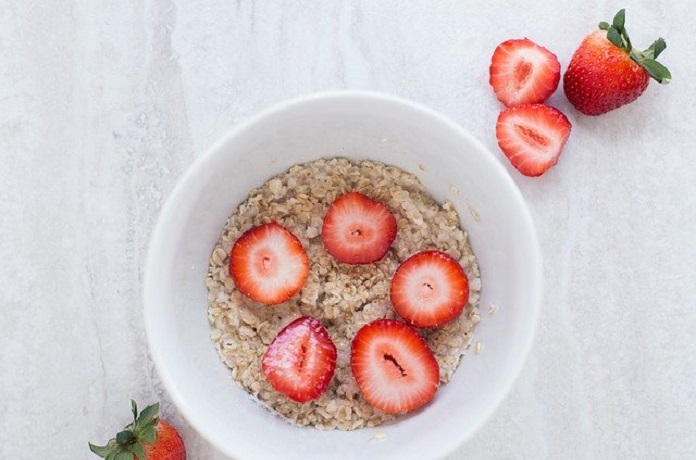Researchers studied whether eating oatmeal helps improve gut bacteria and lower cholesterol.
In 2008 up to 39% of adults over 25 had high cholesterol levels, which increases the risk for heart disease and stroke. Diet and exercise have long been known to improve heart health, but much attention has lately been focused on gut bacteria and the role it may play in overall health.
Researchers at Huadong Hospital Affiliated to Fudan University in Shanghai, China recently studied whether eating oatmeal improves gut bacteria and helps to lower cholesterol. Their results were published in the journal Nutrition and Metabolism.
The study followed 62 patients diagnosed with mild to moderately high cholesterol. The participants were 18-65 years old and did not regularly eat oatmeal. At the beginning of the study, the patients were randomly grouped in the oatmeal group or the white rice group. Blood samples and stool samples were taken at the beginning of the study to test cholesterol levels and gut bacteria.
Patients in the oatmeal group ate one cup of oatmeal per day, while those in the rice group ate one cup of white rice per day for 45 days. The oatmeal or rice replaced part of the patients’ usual staple breakfast or supper. Participants spoke with the research team weekly to keep a record of the food they ate and medicines they took, and any problems they had during the study. Every two weeks they met with the research team in person.
At the end of the study, the research team took another set of blood and stool samples to compare to the initial test results. The test results were statistically analyzed to determine cholesterol levels and microbial DNA levels and how they changed over the course of the study.
At the end of the study, the oatmeal group had lower cholesterol compared to the white rice group. Total cholesterol levels for the oatmeal group went down by one point. However gut bacteria did not significantly change. The oatmeal group had increased levels of the bacteria Firmicutes and decreased levels of the bacteria Bacteroides.
It is believed that the Firmicutes family of bacteria help to break down carbohydrates like fermentable fiber, while Bacteroides primarily break down sugars. Other differences in the gut bacteria supported the lower cholesterol results for the oatmeal group.
Researchers believe the low number of participants limited the results they were able to obtain from the study. Future studies with more participants would allow differences to be better detected in the gut bacteria composition.
Written by: Rebecca K. Blankenship, B.Sc.
References:
1. Cholesterol. World Health Organization. https://www.who.int/gho/ncd/risk_factors/cholesterol_prevalence/en/. Published 2020. Accessed October 19, 2020.
2. WHO | Raised cholesterol. Who.int. https://www.who.int/gho/ncd/risk_factors/cholesterol_text/en/. Published 2020. Accessed October 19, 2020.
3. Ye, M., Sun, J., Chen, Y. et al. Oatmeal induced gut microbiota alteration and its relationship with improved lipid profiles: a secondary analysis of a randomized clinical trial. Nutr Metab (Lond) 17, 85 (2020). https://doi.org/10.1186/s12986-020-00505-4
Image by Pexels from Pixabay



